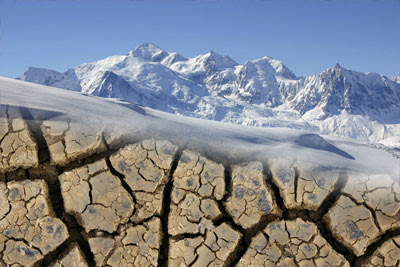
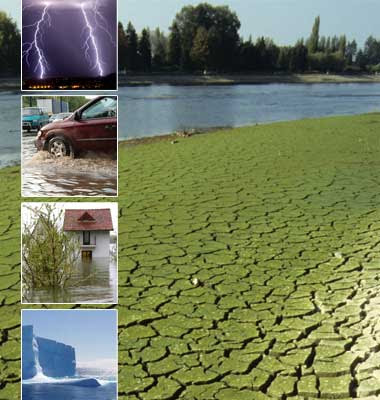

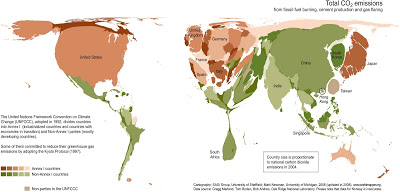
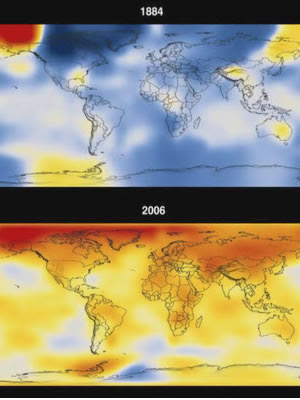
A convenient truth about climate change:
why most of the major powers
really want global warming
by
David Lempert and Hue Nhu Nguyen
12/02/2009
If you read the international press, it is easy to be convinced that the international “debate” about global warming is about whether international organisations and country governments are able to “wake up” to alarming news about the future of the planet.
But if you actually read between the lines of the analyses done by the IPCC (Inter-Governmental Panel on Climate Change), there is a different ‘truth’ that is convenient to the major countries of the ‘North.’ Despite leaders’ claims of attention to ‘solving’ this ‘global’ problem, they actually have everything to gain from global warming and seem to actually want it.
We took the best evidence available for impacts on agriculture, on trade routes, on flood damage, on migration, on resource extraction (as impacted by climate) and on health and disease and analysed it.
What we found is that in a world divided by the wealthy countries of the ‘North’ and the poor countries of the global ‘South,’ climate change will make the ‘North’ warmer and richer and the ‘South’ poorer in a way that reinforces the current imbalances of power.
The biggest winner from global warming is going to be Russia, turning its frozen North into arable land and lowering the cost of resource extraction while also opening up new sea lanes for trade through the North Pole. This is one of the reasons why Russia has been comparatively silent on this debate. Canada will benefit in a similar way.
China too is going to benefit. Even though tens of millions of Chinese may be displaced from the southern part of the country, there will be benefits to the North and weakening of their neighbours that should allow China to expand its power.
The other major powers, the US, Europe and Japan will have some dislocations of population and industries, but the overall costs will likely wash out.
The biggest losers from climate change, in every way, are the same peoples who are always at risk; Africa, Latin America, Southeast Asia, India, and the Pacific Islands. It is here where millions of peoples will be flooded from their homes and lose their livelihoods. Minority cultures and indigenous peoples will be hit hard, forcing assimilation and possibly extermination of cultures; requiring a rapid and distorting change if they are to physically survive.
Given that most of the major powers have likely done their own calculations, why are they not available publicly and why the apparent concern and rhetoric about climate change as a shared global problem? Perhaps it is no accident that the United Nations Framework Convention on Climate Change and IPCC offices have asked countries to do analyses of impacts on their own countries and have not sought to collect and publicise these country analyses.
It seems as if the major powers have co-opted the dialogue in an attempt to buy off the losers with a scheme that they can control, that also hides the calculations of the costs and benefits.
Rather than take the approach that a court would take, measuring the benefits and losses of different parties and then redistributing them so that everyone remains whole, the approach of the international community is one of ‘carbon trading’ that sends some compensation to poor countries in ways that slow the changes by charging the countries that release more greenhouse gases.
Meanwhile, it seems a safe bet to assure that the countries benefiting economically from global warming will also use their increased revenues to increase their military spending, to control national and international security threats. With climate change certain to lead to instability within countries and between them, there will be an argument for legitimising increased military interventions that will (at least for a time) reinforce current imbalances of power between North and South.
The real motive for the greening of industries is driven by economics – the costs to them of accessing and controlling resources – and of pollution in those countries, with little global concern for the overall planetary environment.
For those in the developing world, who will have to deal with these truths, it is time to realise that the current global discourse isn’t evidence of a new concern among wealthy countries for a common destiny of the planet and for the world’s poor. The major powers are not the ‘friends’ of poor countries on this initiative. Similarly, China, while claiming to be one of several poor countries whose per capita consumption should be allowed to increase to that of other major powers, is not promoting this interest on behalf of all of the world’s poor, since this change is likely to be to China’s benefit and at their expense.
Sale of resources by poor countries to seek to quickly increase their relative position – such as oil sales by Cambodia or Azerbaijan – will likely worsen their overall position in the long run by promoting the environmental changes that will help to impoverish their peoples. Similarly, attempts to quickly modernise and increase consumption in developing countries other than China will help to reinforce the global changes that will keep developing countries poor and weak while also destroying their cultures.
The best strategy for ‘developing’ countries is to try to put aside regional differences now and to collectivise as alternative power blocs against the major powers. The world’s native peoples must continue to organise as a bloc for the enforcement of international law, since they are at an accelerated risk of disappearing as a result of climate change. It is in their interest to seek to maintain their traditional systems and keep their patterns of consumption low as a way to slow global warming and their vulnerability to it. At the same time they may have to consider (unfortunately) investing what they can in the technologies of defence and power that they can use to force change in the developed countries.
David Lempert is an anthropologist, lawyer, and educator Hue Nhu Nguyen, is an environmental policy analyst
This piece found in :
http://www.theecologist.org/pages/archive_detail.asp?content_id=2112
and first appeared in The Ecologist February 2009

to subscribe yourself in the free
super usefull newsletter of The Ecologist:
http://graphicmail.co.uk/RWCode/subscribe.asp?SiteID=7964&Mode=subscribe&resize=0
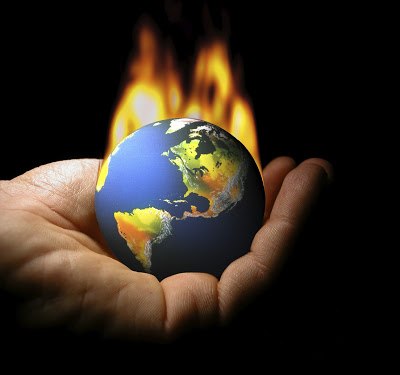

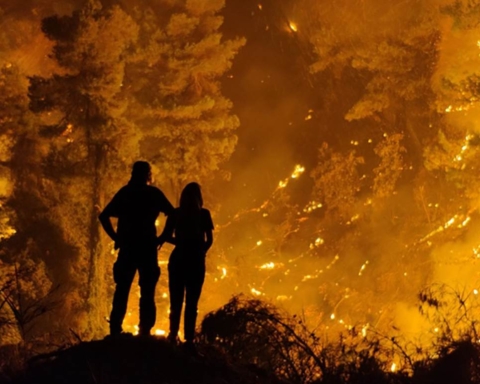








Suggest you to provide link to
http://www.energyenvironmentforum.com
and encourage your readers to use the Energy Environment Forum and get a link back !
energyenvironmentforum at gmail dot com